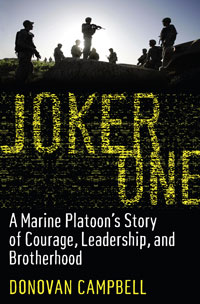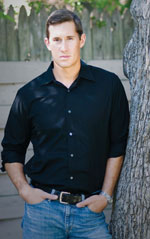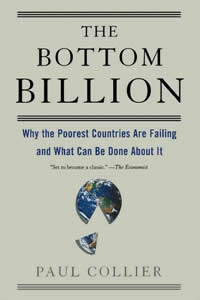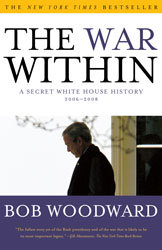
Jordi helps me display my big bandage.

Jordi and Molly kept me company throughout the night (click to enlarge).
On April 16, I had an endolymphatic shunt placed behind my left ear. The operation was done by Dr. Jerry House at the Carmel Surgery Center in Indianapolis (by St. Vincent’s Hospital on Meridian, just a couple miles north of the I-465 bypass).
The surgery was done at 2 p.m. and lasted about 70 minutes. Everything went great. We were on the road back home to Fort Wayne about 4:45. Hopefully, the operation will eliminate most of the vertigo and other symptoms of Meniere’s Disease, which I’ve battled since around 2003.
Thus far, I’ve been spared three common side-effects:
- The operation can trigger severe nausea and vertigo which can last a couple weeks. I’ve had zero nausea.
- The ear, or whole side of the face, can be puffed out significantly. I have very little swelling.
- I was warned that there can be significant pain the first day or two. I’m taking Vicodin, but I’m not sure I need to. The discomfort is minimal.
I came home with a big bandage, which we removed Saturday morning. We had to remove the left arm of my glasses in order to fit them on around the bandage.
I spent the evening on the couch in the living room, alternating between dozing and reading Robert Parker’s “Stranger in Paradise.” Since it was plenty comfy, I just stayed there throughout the night. Besides, my sleep patterns were all messed up. I ended up watching “Bangkok Dangerous,” a Nicholas Cage movie, in the early morning hours. Pretty good movie.
The symptoms of Meniere’s Disease started around 2003, though it was a couple years before it was diagnosed. Meniere’s causes frequent vertigo and hearing loss. It only affects my left ear; I’ve lost about 60% of my hearing in that ear and have tinnitus, a constant background roar, which I’ve learned to not really notice.
There is no cure for Meniere’s. However, several surgeries can offset the symptoms. The endolymphatic shunt is the least invasive. When pressure builds up, which brings on the vertigo, fluid (only a couple drops) will now be diverted into this shunt and then absorbed into the surrounding membrane. The surgery is 90% successful immediately, and about 70% successful after 3-5 years (2 out of 10 people revert to how they were before the surgery).
I could have had the surgery done here in Fort Wayne. However, I didn’t have confidence in the doctor here. He’s good, and lots of people speak highly of him, but he didn’t seem to pay much attention to things I told him, and kept prescribing more and more pills. I wrote about that experience.
My family doctor, John Carnes, tracked down the name of Jerry House, whom one of his other patients had used. Pam and I immediately liked him. He’s very personable, quickly acknowledged my symptoms as Meniere’s Disease, and pulled out great metaphors to clearly explain what was happening. He’s done zillions of these operations.
When the nurse at the surgical center was prepping me, I asked, “Do you always work with Dr. House?”
She said, “It just depends on who they assign me to. But when we get assigned to Dr. House, we know it’s going to be a good day.”
She then sang further praises–he was kind, considerate, professional, and was always the same. “With some doctors, you’re not sure what you’ll get that day.”
My various posts about the surgery:
- Now Proud Owner of an Endolymphatic Shunt (April 17, 2010)
- My Meniere’s Surgery, One Year Later (April 16, 2011)
- My Meniere’s Surgery, Two Years Later (April 16, 2012)
- Miniere’s Disease and the Barf Update (April 25, 2013)
- My Annual Meniere’s Disease Update (April 22, 2014)


 “Joker One: A Marine Platoon’s Story of Courage, Leadership, and Brotherhood,” left me in tears. It really did.
“Joker One: A Marine Platoon’s Story of Courage, Leadership, and Brotherhood,” left me in tears. It really did.  Campbell (left) throws some deserved barbs at Paul Bremer, the civilian leader whose decisions caused so much havoc in Iraq. During the summer of battle, with friends dying around him, he muses about people in the States obliviously heading out on their vacations. In August, “America focused on something totally incomprehensible to us–the 2004 Summer Olympics.” It shows how much the war had been removed from our minds.
Campbell (left) throws some deserved barbs at Paul Bremer, the civilian leader whose decisions caused so much havoc in Iraq. During the summer of battle, with friends dying around him, he muses about people in the States obliviously heading out on their vacations. In August, “America focused on something totally incomprehensible to us–the 2004 Summer Olympics.” It shows how much the war had been removed from our minds. MSNBC is back on XM Satellite Radio, finally! I used to listen to it all the time going to work, when Don Imus hosted the morning show. Everybody who was anybody in politics clamored to be on his show. He made them put away the talking points and give honest opinions, and they complied (or were blacklisted by Imus). I loved it. It was the most enlightening, and fun, political show on TV or radio (though Imus constantly strayed over “the line”).
MSNBC is back on XM Satellite Radio, finally! I used to listen to it all the time going to work, when Don Imus hosted the morning show. Everybody who was anybody in politics clamored to be on his show. He made them put away the talking points and give honest opinions, and they complied (or were blacklisted by Imus). I loved it. It was the most enlightening, and fun, political show on TV or radio (though Imus constantly strayed over “the line”). In his book “The Bottom Billion,” about the world’s poorest countries (which I
In his book “The Bottom Billion,” about the world’s poorest countries (which I  “The War Within” is Bob Woodward’s fourth book about the inner workings of the Bush administration during wartime. He was granted a tremendous amount of access, including frequent conversations with George Bush. Bush must have deemed the previous books to be fair, since he kept the door wide open.
“The War Within” is Bob Woodward’s fourth book about the inner workings of the Bush administration during wartime. He was granted a tremendous amount of access, including frequent conversations with George Bush. Bush must have deemed the previous books to be fair, since he kept the door wide open. 


